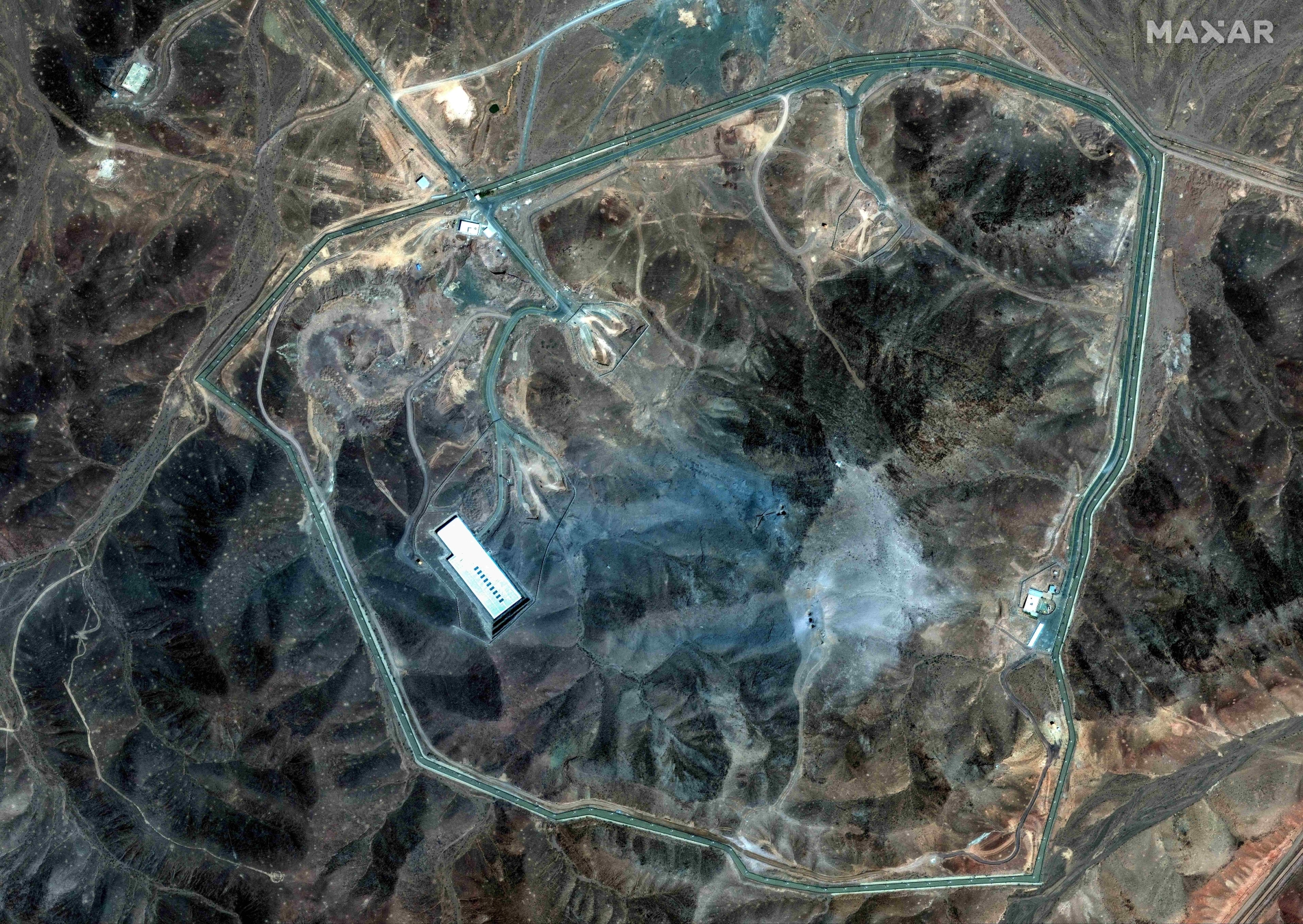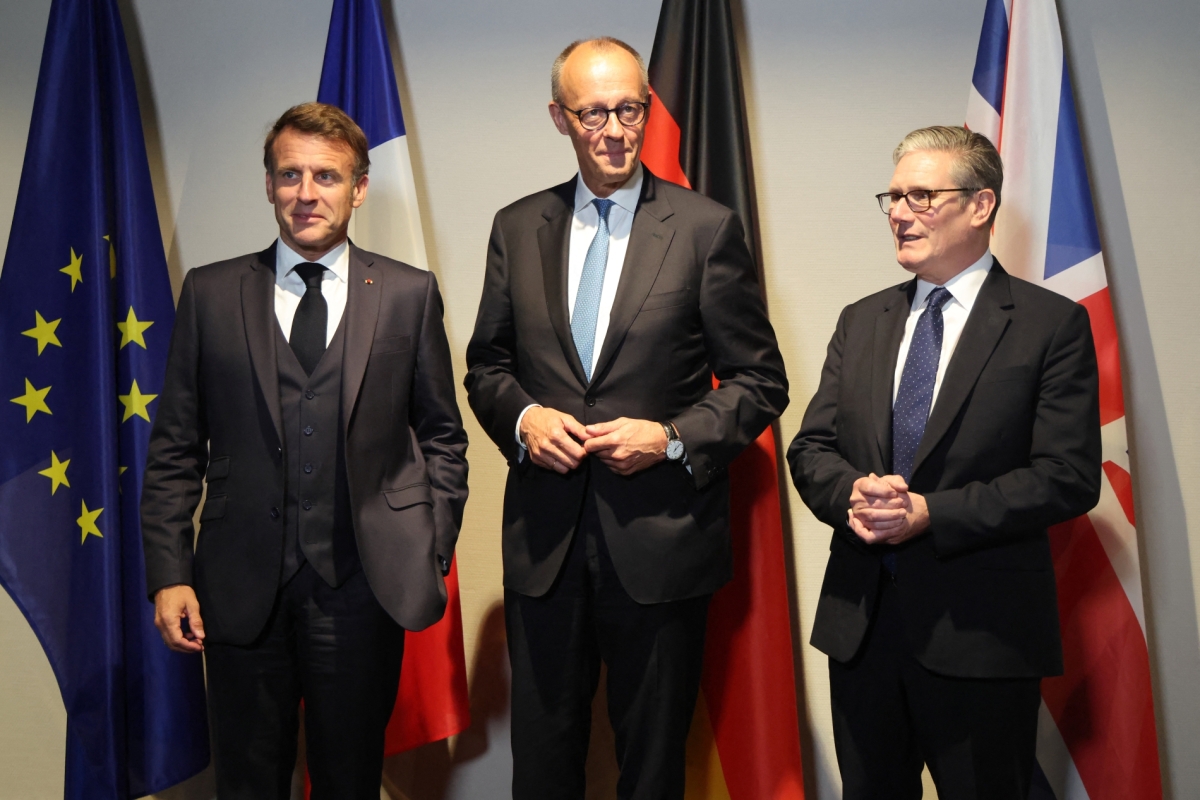Germany, France, and the United Kingdom on Thursday triggered the so-called snapback of UN sanctions on Iran, after years of talks to elicit greater cooperation and transparency over Iran’s nuclear programme came to nought.
The three European countries, known as the E3, were all parties to the 2015 Iran nuclear deal that was meant to constrain Iran’s development of nuclear weapons, but which then-President Donald Trump abandoned in 2018. The E3 said it took the step because Iran, for years, had failed to comply with its obligations to the International Atomic Energy Agency (IAEA) under the 2015 nuclear deal, the Joint Comprehensive Plan of Action (JCPOA).
“Iran’s non-compliance with the JCPoA is clear and deliberate, and sites of major proliferation concern in Iran are outside of IAEA monitoring,” the foreign ministers of France, Germany, and the UK said. “Its nuclear programme, therefore, remains a clear threat to international peace and security.”
The formal notification to the United Nations sets into motion a nearly unstoppable train that will end with the return, in a little over a month, of a half-dozen prior UN sanctions on Iran that had been suspended for the past decade.
US Secretary of State Marco Rubio applauded the move and said the United States would work with European allies to complete the snapback of those sanctions, while remaining open to diplomacy.
The E3 – France, Germany, and the United Kingdom – initiated a process to reimpose UN sanctions on Iran. Snapback sanctions are a direct response to Iran’s continuing defiance of its nuclear commitments. The United States supports the E3’s decision and urges Iran to engage in...
— Secretary Marco Rubio (@SecRubio) August 28, 2025
Those resolutions sought to curtail Iran’s ability to enrich uranium and acquire components needed for its nuclear and ballistic missile programmes as well as conventional arms. The E3 is taking the step now because its ability to invoke the snapback expires in October, so European countries frustrated with Iran’s lack of cooperation felt they had to use that ability now or lose it forever. And while the sanctions don’t directly go after the Iranian economy in a way that unilateral US sanctions do, they still threaten to pack a punch for a regime reeling from economic malaise and a summer of airstrikes.
With the sanctions back in place, the world, including investors, banks, and markets, would likely “conclude that Iran is a pariah state for the foreseeable future,” said Ali Vaez, the Iran project director at the International Crisis Group. The sanctions would especially constrain Iran’s ability to rebuild its offensive and defensive capabilities in the wake of attacks by Israel and the United States this summer. “They are more symbolic than substantive, like the US sanctions, but they are not without impact,” Vaez said.
It has come to this, most immediately, because Iran would not agree to European conditions that would have secured a six-month reprieve for Tehran. Those conditions included unfettered access for IAEA inspectors, insight into the whereabouts of the 400 kilograms of highly enriched uranium that Iran has already processed, and a resumption of direct talks with the United States.
But that breakdown, which culminated this week in fruitless meetings in Geneva, was just the capstone to years of failed diplomacy to curtail Iran’s rapidly expanding stocks of enriched uranium and advanced centrifuges, the building blocks for a nuclear weapon. Iran greatly accelerated its progress toward a nuclear weapon after Trump withdrew from the Obama-designed 2015 accord, and several rounds of talks with the United States earlier this year yielded no agreement.
Iran’s willingness to engage in talks over enrichment, or access by IAEA inspectors, fell even further after air strikes earlier this summer by Israel and the United States damaged several Iranian nuclear facilities and likely set the Iranian nuclear programme back by months or even some years.

“Iran certainly miscalculated, but there’s blame to go around,” Vaez said. “If Trump hadn’t withdrawn from the JCPOA, we wouldn’t be here, so that is the original sin. But Europe’s recent offer was completely unworkable, too, because it offered no upside for Iran, but only a six-month pause on the snapback. And the Iranians, instead of offering a counterproposal, just dragged their feet and played a game of chicken, but the other side didn’t blink.”
There is still a 30-day window for last-minute diplomacy before the six UN Security Council resolutions passed between 2006 and 2010 (1696, 1737, 1747, 1803, 1835, and 1929) go back into effect. The E3 countries said in their statement: “We will use the 30-day period to continue to engage with Iran on our extension offer, or on any serious diplomatic efforts to restore Iran’s compliance with its commitments.” The E3 is hoping that by playing its ultimate pressure card and triggering snapback, it can force Iran to a more accommodating position. But that is unlikely, Vaez said, with all sides clinging to maximalist positions on issues such as enrichment and IAEA access.
“There is not enough common ground to believe there could be sufficient progress to stop the clock” on the snapback, he said.
The reason the return of those sanctions is all but inevitable is because procedurally, it works the opposite way from most things at the UN Security Council: Any permanent member, including the UK, France, and the United States, can veto any effort to cut Iran some slack and keep the old resolutions on ice.
In practical terms, the return of those old UN sanctions could have some impacts on the Iranian economy and oil exports simply because banks, insurers, shippers, and others will likely be less willing to do business with Tehran. Additionally, the revived sanctions would allow any state to interdict Iranian vessels at sea, which could complicate Iran’s ability to export crude in contravention of existing US sanctions.














